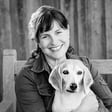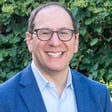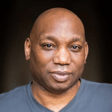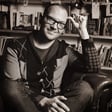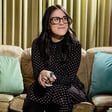
Episode 489: Staying Power, Book Promotion, Platform, and ‘Slip,’ a Memoir-Plus with Mallary Tenore Tarpley
"For many of us, myself included, it's easy to want to be on the New York Times bestseller list, or the USA Today bestseller list, and to try to get an amazing number of week-one sales, but it's important to remember that those lists are really hard to get on, and there can be this nice long tail in terms of the impact of a book where maybe it doesn't necessarily get a ton of sales in that first week or that first month. But over time, it continues to sell, right? And then you get these bumps, and you realize that, oh, this book has staying power," says Mallary Tenore Tarpley.
Mallary is here today for a double-feature Friday. She’s the author of Slip: Life in the Middle of Eating Disorder Recovery (Simon & Schuster/Simon Element). It’s pretty heavy shit, man. She developed a disordered relationship to food when her mother passed away when she was just 11 years old. Mallary spent years in treatment and the book blends her personal story with the ballast of science and outward-facing reporting, memoir-plus as it was pitched. We’ll call it Memoir Max.
Mallary has been on the hustle for Slip. She’s everywhere. She’s posting. She’s newslettering. She’s beating the drum. She’s an example of what a modern author must do in this age. I’d say take a look at what she’s doing and maybe cherry pick what works for you. But speaking from experience, really nobody is going to do it for you.
She graduated from Providence College and earned an MFA in creative nonfiction from Goucher College, where she started Slip. She worked with my dear friend Maggie Messitt on it for a bit.
Mallary is an assistant professor of practice at the University of Texas where she teaches journalism classes. She started her career at The Poynter Institute where she would become the managing editor of the website, poynter.org. Her work has appeared in The New York Times, The Washington Post, Teen Vogue, Nieman Storyboard and she has a Substack, don’t we all, called Write at the Edge, at mallary.substack.com. You can also learn more about her at mallarytenoretarpley.com and follow her on LinkedIn or Instagram as well.
We talk a lot about
- Platform and publicity
- How she vetted a freelance publicist
- Staying power
- And some of her best memories working alongside Roy Peter Clark at Poynter
Newsletter: Rage Against the Algorithm
Show notes: brendanomeara.com

